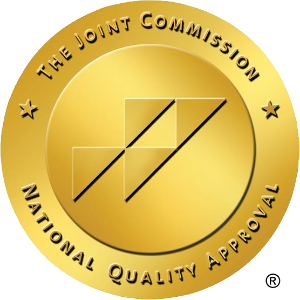Thank goodness addiction recovery programs are not one-size-fits-all. Fortunately, there are several avenues to take toward achieving recovery from drug or alcohol addiction, including outpatient and residential settings. But even within the outpatient category of addiction treatment there are various levels of intensities. This allows for a more appropriate matching of the individual’s recovery needs with the various programming options and levels of care.
Day treatment offers the highest level of intensity for outpatient rehabilitation. This level of care is as close to residential treatment as possible and offers an excellent option for those who need to work or take care of the family in the evenings. Day treatment programming is also referred to as partial hospitalization programs (PHP). The two terms are interchangeable.
Day treatment is also available as an intensive outpatient program, or IOP. The IOP is also a comprehensive addiction recovery program, however it involves a less intensive commitment in terms of hours. Where the PHP features large blocks of programing on a daily basis, about 30 hours per week, the IOP is a step down from that intensity with about 9 hours of weekly programming.
What Are the Benefits of Day Treatment for Addiction Recovery?
Let’s face it, not everyone has the freedom to take an extended leave from work or other important obligations. Heading off to a multi-month residential program may be simply untenable either logistically or financially, as the costs associated with residential care are significantly higher. Outpatient programming fills the need for individuals who are committed to breaking free from addiction or chemical dependency but cannot take a long leave of absence.
The level of intensity of outpatient care needed will depend on the severity of the substance use disorder. Partial hospitalization is the closest thing to residential care available on an outpatient basis. These programs require daily engagement of 5-8 hours of therapeutic programming per day. This provides the needed structure for someone with a moderate substance use disorder, while still allowing the individual to return home, or to sober living, at the end of the day. Because of the time commitment involved, the individual would have to drastically reduce their work schedule or work in the evenings to accommodate the program.
An IOP is a step down from the PHP and is suitable for someone with a mild substance use disorder. An IOP requires 3 hours of programming 3 days per week. This schedule allows the individual to remain engaged in school or work at least on a part-time basis during the months of treatment.
Benefits of an outpatient program include:
- More flexibility in scheduling
- Ability to stay at home outside of treatment hours
- Lower cost than residential treatment
- A longer continuum of care as the individual steps down to incrementally reduced levels of care as recovery benchmarks are met
- Ability to enjoy support of family and friends
- Case management, coordination of services
- Medication management for MAT
The Disadvantages of Outpatient Treatment
With all its many advantages for people seeking help for a drug or alcohol problem, there are some negatives to consider regarding outpatient rehab. These include:
- Exposure to substances. If the home environment is not supportive of recovery efforts, and alcohol and drugs abound, the individual will have a difficult time remaining sober.
- Interacting with individuals they used to party with. Being around these influences can undermine sobriety.
- Temptation to quit. Being home around family and friends may tempt the individual to discontinue treatment and to simply stop going.
Treatment Elements of Day Treatment
Comprehensive addiction treatment relies on a variety of treatment elements that each play a part in the recovery journey. Because each person’s substance use disorder is unique and complex, treatment relies on multiple approaches to help the individual acquire the tools and information to transition into recovery. If the individual requires detox and withdrawal support, they will be referred to a medical detox center prior to starting the rehab program.
Most rehabs follow a similar blueprint for addiction recovery. What sets each program apart are such things as services offered and specific philosophical tenets that set the program apart. For example, some outpatient rehabs feature holistic therapies, others might offer legal assistance, where others might have job seeking support services. Some rehabs are gender specific, where others might have luxury amenities provided. Regardless of the trappings, most outpatient programs will include the following interventions:
Psychotherapy
At the center of addiction treatment is psychotherapy; especially effective is cognitive behavioral therapy (CBT). CBT is a 12-week program that helps clients make fundamental shifts in the way they think and respond to triggers or stimuli. In CBT the client will identify thought distortions that have led in the past to substance abuse. The therapist then guides them toward reshaping these thought and behavior patterns toward those that are more positive and productive.
Group therapy
Bonding with others in recovery through group counseling is an essential treatment element. Individuals seeking help for a drug or alcohol problem often feel completely alone in their disease. Through the group interactions, clients learn that they are not alone, and that they can benefit from sharing their own stories and challenges with others. A clinician introduces topics and facilitates productive discussions amongst the participants.
Family therapy
Family-based groups are very important in addiction recovery. In most cases, much harm has been done to the family unit as a result of addiction, with feelings hurt and trust broken. There might be feelings of resentment and sorrow among the family members. Family therapy can aid family members in their healing process, while also preparing the family for what to expect during the recovery process.
12-step programming
Recovery meetings are often included in outpatient and residential treatment programs, and many times are mandatory. The meetings might be SMART Recovery or a form of 12-step program through A.A. These recovery meetings provide a setting that is judgment-free, where attendees can share their stories and offer support. The recovery community also offers opportunities to make new friends who share the common goal of sobriety.
Life skills
Many who have struggled with a substance use disorder have found their lives in shambles. This might include losing a job or being placed on academic probation. It may involve custody issues or legal problems. A day treatment program may offer assistance for these individuals as they make the effort to get back on their feet in recovery. Classes may be provided that teach interviewing skills, how to write a resume, or job seeking strategies. There may be a liaison for acquiring legal assistance or medical treatment.
Education
When someone enters treatment for addiction recovery they are already well aware of the devastation that drug or alcohol abuse can cause. However, in many cases, there is a general ignorance about how addiction actually develops. Teaching clients about the bio-neurology of addiction can actually have a deterring affect. Addiction education classes show the clients how as tolerance increases consumption, alterations in the brain result.
Relapse prevention
It is a fact of addiction recovery that getting sober is much easier that staying sober. Preventing relapse is a high priority activity throughout the outpatient program. During rehab much attention will be paid to this subject. Clients will be coached to develop their own relapse prevention plan, identifying their unique triggers and weaknesses, and then planning strategies to help them maintain sobriety.
How Sober Living Adds a Protective Factor in Day Treatment
One way to improve the chances of maintaining sobriety is to spend some time residing in sober living. The sober living option allows the individual to slowly transition back to their regular lives, which can improve recovery success. It is often difficult to finish treatment and return to daily life. Most people in early recovery feel very vulnerable as they try to adjust to a new way of living and thinking. These new skills take time to master, so a sober living home offers a safe, supportive environment while the individual becomes more comfortable in sobriety.
There are several benefits to staying in sober living. These include:
- It offers an opportunity to be accountable to people other than oneself
- It provides a substance-free living space
- It encourages establishing new healthy routines in sobriety
- It offers opportunities to make new friends
- It helps teach personal responsibility through house rules and chores
- It provides a deterrent to use or drink, with regular testing and a zero-tolerance policy
Sober living can last a month, two months, or for an extended period. Even a couple of months offers recovery benefits as it helps to reinforce sobriety.
Building a New Sober Life
After the day treatment program is completed it is necessary to embrace the commitment to living a sober lifestyle. This doesn’t come easily to most, as it requires a significant adjustment in just about every area of life. Former friends or acquaintances may have to be given up, new social settings must be explored, and a whole new attitude is required. Basically, sobriety becomes the number one objective in life.
To protect this effort it is important to take steps to actively support recovery. Remaining strong in one’s sobriety requires effort and vigilance. The choices made after rehab is completed can make or break recovery success. Here are some protective measures to consider:
- Continue with outpatient therapy. Prioritize mental health in early recovery by continuing on with basic outpatient services. This usually involves two hours per week of therapy. Outpatient therapy offers an helping hand when encountering the challenges to sobriety in early recovery. A therapist or support group can provide support and insights to help smooth the path in those early months.
- Seek opportunities to volunteer. Volunteering is one of the most productive activities during early recovery. Helping others, whether it is in a recovery community, a soup kitchen, or an animal shelter, can offer protection against relapse. It helps the individual to stop focusing only on themselves and turn his or her attention outward to the needs of others.
- Cultivate sober friendships. Social interaction is crucial in recovery. In fact, social isolation and loneliness will often trigger relapse. It takes some effort in the early months of recovery, but seeking out sober activities, groups, or cultivating friendships with a few people met through these events can keep one distracted and socially fulfilled.
- Focus on wellness. Self-care is important in early recovery and beyond. After likely years of neglecting one’s health, it is good to focus attention on restorative activities. These include getting regular exercise and overhauling the diet to get the essential nutrients that rebuild brain health and improve overall wellness.
When is Day Treatment Not the Appropriate Level of Care?
While day treatment is considered a gift to those who desperately need treatment but cannot leave family and work obligations, some individuals are in need of residential care. Outpatient care will not provide the 24-hour support and monitoring of an inpatient program. Someone who has an entrenched, long-term chemical dependency requires a more intensive approach to treatment. Also, the risk of relapse would be too high for these individuals in an outpatient program.
The residential rehab provides generally the same types of treatment elements as the day treatment program, but the environment is more structured and controlled. In a residential program there is an absence of daily distractions, which allows the person to focus on their recovery efforts. Also, there is usually a medical doctor and a psychiatrist on staff to offer a wider range of services. Residential programs are best for individuals with a dual diagnosis, which is when there is a co-occurring mental health disorder.
Next Level Recovery Offers Day Treatment Near Salt Lake City
Next Level Recovery is a fully integrated addiction recovery complex that includes access to comprehensive treatment. Next Level provides detox services, day treatment, residential treatment, and sober living housing. Emphasizing personal accountability, the program encompasses proven evidence-based therapies, holistic therapies, fitness, and nutritional counseling for a well-rounded approach to recovery. For more information about the outpatient program, please call us today at (801) 386-9799.





